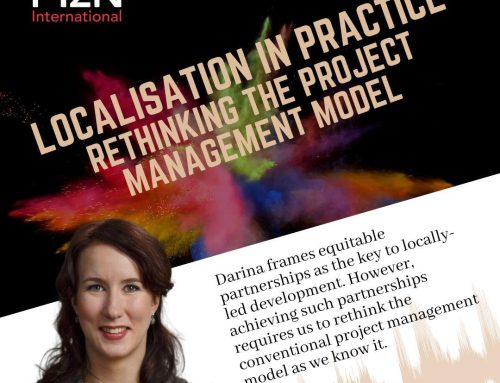A study conducted in New Zealand showed that 24% of employees surveyed had at least one disagreement or argument at work that was serious enough to impact their ability to do their job. A 2019 survey of 30,000 employees found that nearly one in three had left jobs due to associated conflicts. The top sources of conflict were all work-related – differences in opinions about how to perform a task (21%), procedures or policies not being followed (17%), and working conditions and hours (14%). Besides conflict related to projects, interpersonal relations also caused strife. Those types of conflicts become even more disruptive as they often drift into personal attitudes and have little to do with the work itself.
Unaddressed tension can result in absenteeism and dropping in staff motivation. If issues are not addressed, people might still do their work but will be less likely to go the extra mile, put in extra effort and, most importantly, be innovative. The same study mentioned above found that conflict at work often results in: anger or frustration (83%), stress (57%), anxiousness and nervousness (47%), loss of self-esteem (25%) and trouble sleeping (25%). As people have different personalities, some might talk behind others’ backs to process their emotions, others will withdraw and ‘just do their job’, and again others will jump ship when the next opportunity arises.
It is the role of leadership of any organisation to find pathways to transform and manage conflict in a respectful, productive manner.
It is a natural human reaction to want to avoid conflict, yet disagreements are inevitable when people with different backgrounds, cultures, personalities and working styles come together to achieve common goals. It is therefore the role of leadership of any organisation to find pathways to transform and manage conflict in a respectful, productive manner. At MzN, we have found that having a healthy conflict management culture, that is not the sole responsibility of HR, can assist your organisation to become or remain a workplace of choice. Here we share our top five tips on how to effectively manage conflict within a team at work.
5 Tips to Deal With Conflict Constructively
- Name the elephant in the room. Depending on the various layers and power relations within the organisation, staff members might find it difficult to speak up. We therefore recommend involving an ‘outsider’ to help with the task of identifying and naming issues. When clients turn to MzN for help, for example, we are in the unique position of being able to speak with each team member without any biases and just listen. That in itself helps staff release some tension and offers them the feeling of being heard. Since MzN has no stake in the conflict or the organisation, we are able to freely name the ‘issue at hand’ and openly present it to the whole team.
- Find an appropriate space and time. If a conflict emerges between individuals or groups, it is important to find the right space and time to address it. All sides need to be heard, and the conversation requires a facilitator who is accepted by all parties.

- Agree on how to disagree. As a team, work out clear principles on how to deal with conflict. There are helpful tools like ‘active listening and mirroring back’ or conducting a ‘clean talk’ (see our Clean Talk infographic). Practise them regularly and hold each other accountable. Even though it might feel forced at the beginning, the organisation should benefit from it in the medium to long run.
- Set ground rules and identify acceptable and unacceptable behaviour together. Some behaviour and types of language have no place at work. Make sure all understand what is acceptable and unacceptable. As part of the ground rules for productively managing conflict, include a framework for decision-making, clearly defining roles and responsibilities so that people know what is expected of them through clear and effective communication. Create a safe space to talk – for all parties involved.
- Speak openly about the issues emerging out of conflicts and how those were resolved or transformed without naming individuals or aggravating further strife. It will help the whole organisation if past conflicts and issues are spoken about openly to avoid making them taboo. It also shows that disagreements are a natural part of a shared working environment and not something to be feared or ashamed of.
Conflict in an organisation is inescapable. However, disagreements at the workplace do not only affect the psychological and physical state of employees. On an organisational level, they also slow down productivity, take up time and impact the work environment as a whole. Addressing conflict proactively and working with your team to deal with it in a healthy manner can therefore save valuable time, boost motivation and increase productivity. We at MzN are happy to assist you and your team deal with conflict constructively. If you are keen to find out more, please get in touch.





